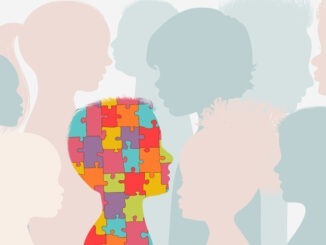As reported by ITVX, a new report reveals thousands of autistic children face lengthy waits for health and education assistance, prompting calls for a more needs-led approach
Parents are instead being left to navigate a complex support system which is made worse by processing delays and waiting as the number of children accessing autism services hits at a record high.
The report by the Child of the North initiative led by the N8 research partnership and the Centre for Young Lives think tank has now called for a ‘needs-led’ approach instead of relying on a ‘diagnosis-led’ system.
This, it says, will lead to early identification becoming the norm, and faster effective support offered without relying on a diagnosis.
One parent, seeking an assessment for her child, told the report’s authors, trying to receive an assessment was “an absolute nightmare … our systems in health and our systems in education don’t link and can’t talk, and we can’t transfer things over, and things had to be logged in one place and not another.”
The authors argue children and young people with autism and conditions such as ADHD can thrive in mainstream education if their needs are supported in a timely way.
Early identification and support can also mitigate the negative and costly effects on autistic children’s physical health.The report highlights how since Covid-19 there has been a 306% increase in the number of children waiting for an autism assessment.
Just one in 10 children are receiving an appointment within 13 weeks of being referred, while more than one in four parents have waited more than three years to receive support for their child.
The report’s analysis reveals a system under unsustainable pressure.
- In September 2023, there was a 27% rise in new autism referrals over the last year.
- In July 2022, more than 125,000 people were waiting for an autism assessment by mental health services, an increase of 34% since the previous October.
- By July 2023, this number had risen to more than 143,000.
- Figures published in September 2023, show there were 157,809 patients with an open referral for suspected autism
- 93% of children did not receive an appointment within 13 weeks of being referred.
- The number of children yet to receive an appointment after 13 weeks has increased by 36% since Covid-19, and there has been a 21% increase in the last twelve months.
- More than one in four parents have waited over three years to receive support for their child.
- The evidence shows that children born to mothers without educational qualifications will receive an autism diagnosis two years later than their peers, and that issues around timely identification and support are exacerbated for girls, who are more likely to be misdiagnosed and diagnosed later than boys, or not at all.
- Children and young people from ethnic minority backgrounds are experiencing lower rates of identification of autism and often experience more severe difficulties.
The report warns that the failure to provide the right autism support can lead to poor long-term outcomes for autistic children, including an increased prevalence of connected conditions such as mental ill health and a greater risk of school exclusion or not attending school.
Data from the Connected Bradford database included in the report reveals that children who had been referred but were still waiting for an assessment were at the greatest risk of being excluded from secondary school.
Autistic children who had a diagnosis were less likely to be excluded from school, compared to those awaiting an assessment, suggesting a diagnosis and subsequent support has a protective effect.
With waiting times increasing, there is a growing risk to education outcomes, with evidence suggesting that many autistic children are ending up in expensive Alternative Provision. The report also describes how a major barrier to existing systems is the perceived need for a medical diagnosis of autism before any child can receive support, with the perception among schools that this is a requirement, preventing some children from accessing support.
Given the long waiting lists, many autistic children are not receiving the support they need because they do not have a formal diagnosis.
“The number of autistic children seeking support is at a record high and the number waiting for an assessment has rocketed since Covid,” said Anne Longfield, Executive Chair of the Centre for Young Lives.
“The autism assessment crisis is leaving thousands of children without the support they need and parents having to battle their way through a nightmare process that can take years to resolve.
“The pressure and stress this is putting on families and children can have terrible and damaging consequences for mental health and for children’s education chances.
“Autistic children with a referral who are waiting for an assessment are at significantly greater risk of exclusion from school, with all the further risks that can bring. If waiting times continue to increase, so can the risk of increased exclusion and poorer educational outcomes for autistic children.
“The evidence shows the need to move to a system of support that responds to the needs of autistic children, rather than waiting for diagnosis before any help appears.
“Without urgent reform, we cannot hope to improve the life chances of the next generation.”




Be the first to comment